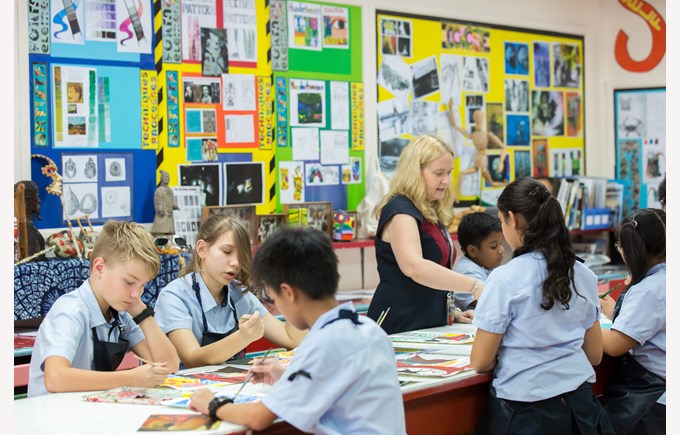The IPC is one of the fastest-growing curriculum choices in the world today, used in schools in over 90 different countries. It is a comprehensive curriculum for 5 -11 year olds, made up of over 130 exciting, engaging and globally relevant thematic units of work, which are designed around a clear process of learning and with specific learning goals for subject, personal and international learning. With its own Assessment for Learning Programme, the IPC provides immediate support for teachers and learners through it’s comprehensive design and rigour, whilst being flexible enough for each school to adapt the planning and build on their own strengths. Each IPC unit is designed around one core purpose: improving children’s learning. Our world class writers have created a range of cross-curricular units based on globally relevant themes that excite children and teachers alike. They are designed to nurture children’s personal qualities and develop international mindedness, and at the heart of these units are the IPC Learning Goals. Mileposts and Learning Goals
The IPC Learning Goals are the foundation of the IPC. The IPC Learning Goals define what children are expected to know, what they should be able to do, and the understandings they will develop in their academic, personal and international learning. The IPC Learning Goals are defined in each age phase: Milepost 1, Year 2 (ages 5-7 years)
Milepost 2, Year 3 & 4 (ages 7-9 years)
Milepost 3, Year 5 & 6 (ages 9-12 years)
These learning goals guide learning and teaching and help to focus assessment. We believe that the IPC Learning Goals are equal to or exceed those of any curriculum in the world. There are three types of Learning Goals: Subject (Academic) Learning Goals
Personal Learning Goals
International Learning Goals 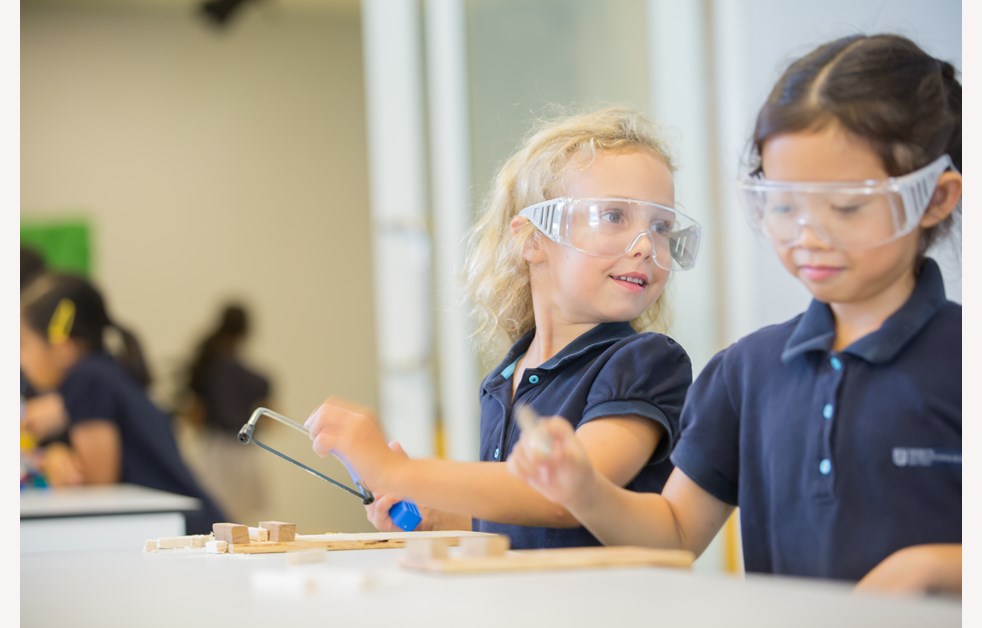
Ages 11-14 In the first three years of Secondary School, students continue to follow the English National Curriculum in order to build on and consolidate the skills and knowledge which they have learnt in the Primary School, in preparation for the demands of the GCSE course which follows afterwards. Key Characteristics
Students study a wide range of core subjects: English (or English as a Second Language), Mathematics, Science, a modern foreign language (Spanish, Mandarin, French or Thai), Art, Design and Technology, Drama, Geography, History, ICT, Music, Physical Education (PE), and Personal and Social Education.
They participate in two periods of Enrichment per week. These Enrichment lessons provide students with the opportunity to apply their skills and knowledge to topics beyond the formal syllabus
Students are placed in ability sets for English (or English as a Second Language), Mathematics, Science and Literacy. All other subjects are taught in mixed ability Tutor Groups.
Thai nationals must do Thai Language, with all other students studying French or Spanish, plus one period of Thai for Foreigners.
Teachers decide what Level a student is working at by using a variety of assessment methods and techniques, including formal testing and examinations.
Benefits to Our Students
The curriculum for Year 7, 8 and 9 has been designed by each subject area to adequately prepare students for the demands of GCSE. Assessment criteria and teaching content have been carefully mapped to ensure that students know, understand and are able to perform the key skills by the end of Key Stage 3 which will enable them to achieve outstanding GCSE grades. Students work towards achieving 20 key criteria in each subject, allowing teachers to offer personalised and specific feedback on how they can further improve their performance.
Students receive an excellent foundation in a very wide range of subjects, which allows them to make informed decisions in Year 9 about which subjects they would then like to study at GCSE level in Year 10. 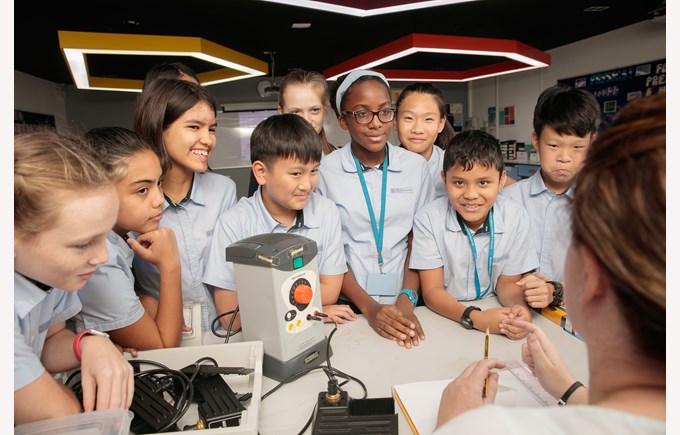
Ages 14-16 In Year 10, our students begin the two-year General Certificate of Secondary Education (GCSE) course. It is a highly-regarded course taken by the vast majority of students aged 14 to 16 in England and Wales. In addition to the GCSE we also offer our students the International GCSE (IGCSE), which is at least as rigorous as the GCSE but covers more international topics rather than being grounded in British situations and settings. Key Characteristics
Regents’ students must study a number of compulsory IGCSE subjects: English Language, English Literature, Mathematics, Science. They will also study Core Physical Education (PE) and Growing Minds. Students who are not native English speakers are likely to study IGCSE English as a Second Language rather than the two separate English options All students will study all three sciences (Physics, Chemistry and Biology) and they will study towards a Dual Award worth two IGCSEs. Some students will study all three as a Triple Award at the discretion of the Head of Science. All students will choose an additional language to study from a range of options including: Thai (First Language), Korean (First Language), Mandarin (First Language), Russian (First Language), Mandarin, Spanish or French. Then will then select an additional four subjects from a total of 16: Psychology, ICT, Computer Science, Geography, Business Studies, Economics, Fine Art, History, DT Graphic Products, Photography, Graphic Communication, Music, Physical Education, Drama, Travel and Tourism, Three Dimensional Design. The courses cater for different ability levels, with students having the option to choose between core and extended papers in many subjects. The extended curriculum is more challenging and designed for students who are expected to achieve higher grades At the end of the two-year course, students receive a grade for each subject they have sat, based on their results in coursework and examination.
Benefits to Our Students
IGCSE qualifications are amongst the most recognized in the world for the 14 to 16 age range. They are widely accepted by schools around the world which offer higher level courses, such as the International Baccalaureate Diploma and A-Levels Students on the course further develop their higher-level thinking skills, including problem-solving, investigation, initiative, teamwork and recall of knowledge The course offers a breadth of academic study, enabling students to explore a wide range of subjects and interests. 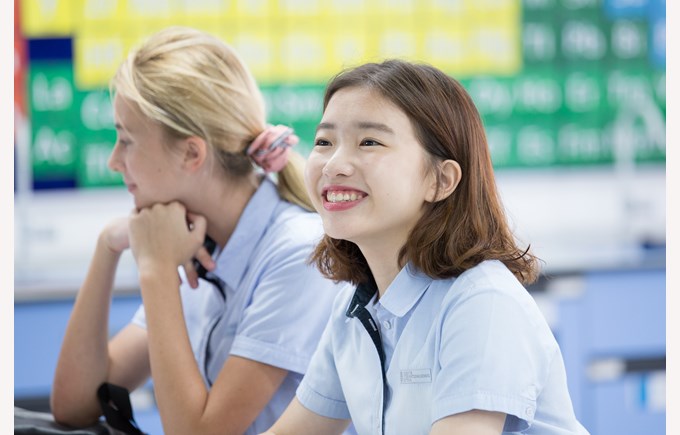
Ages 16-19(IB diploma) The International Baccalaureate Diploma Programme at Regents International School Pattaya is the perfect springboard for students keen to book their places at the most prestigious universities around the world. The IB Diploma is a qualification recognised globally by Oxbridge and the Ivy League amongst others, and is both academically stimulating and focused on useful, experience-based learning. Designed for those in years 12 and 13 of education, the IB Diploma sees students study six subjects from an inspiring range of options, complete a Theory of Knowledge course designed to cultivate critical thinking, and undertake CAS (creativity, action, service) learning. All of this encourages children to become broader, higher-level thinkers; students do not just revise to pass an exam, instead they become skilled and critical thinkers, researchers and reflectors, paving the way to becoming the best versions of themselves they can possibly be. Key Characteristics
Students study six subjects, three at standard level (SL) and three at higher level (HL). Standard level courses are intense, rigorous and broad. Higher level courses enable students to explore additional topics in greater depth and over an extended number of hours. In total, students can choose from 31 different subject options. All students complete an extended essay of 4,000 words and undertake a Theory of Knowledge (TOK) course, which cultivates critical thinking Diploma candidates are required to participate in experienced-based learning called CAS (creativity, action, service) External assessments include a variety of tasks such as written essays and examinations. Internal assessments, marked by Regents’ own teachers and moderated by the IB, are factored into the students’ final grades. Benefits to Our Students
It offers both academic breadth and depth. By studying six subjects, our students can keep their university degree course options open, whilst still studying subjects with great rigour It allows our students to continue to cultivate a sense of social responsibility, an international mindset, a recognition of the importance of taking action to build a better future – all things which we aim to instil in our students from Early Years upwards It further encourages our students to become independent, higher-level thinkers. Research skills, critical thinking, reflection, time management – these are all important attributes for students undertaking the Diploma’s 4,000 word extended essay and the Theory of Knowledge (TOK) course It is widely recognised by universities around the world, including Oxbridge and Ivy League institutions. With hard work and focus, Regents’ students should anticipate reaching outstanding universities. 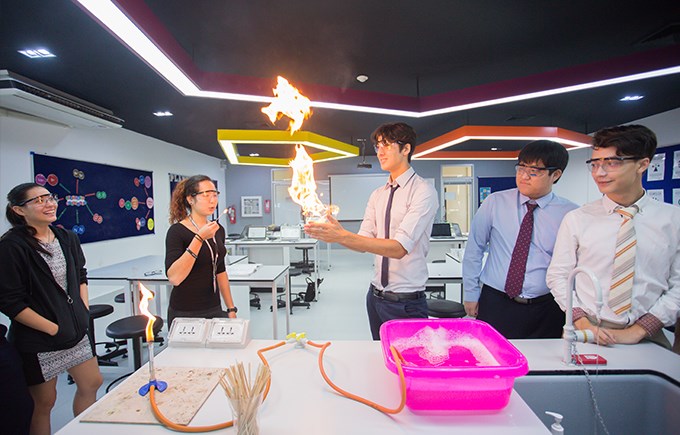
The sith form (16+) The ‘Sixth Form’ at Regents International School Pattaya is roughly equivalent to Senior High School at an US-curriculum school. Most of our Sixth Form students are aged 16 to 18 and have their sights set on university places. You can see for yourself that our examination results are well-above the worldwide standard and getting better each year; that our students are invited on to degree courses at universities around the world; and that we are helping to create a generation of young adults of whom we can all be proud. 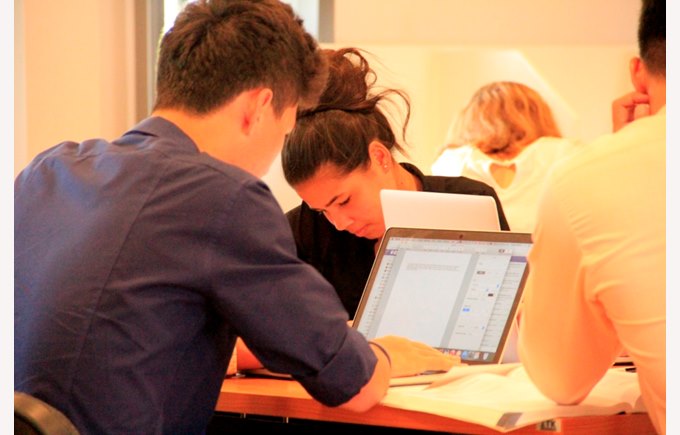
Pathways programm (for students in years 10-12) At Regents, we think beyond a traditional education to transform learning for each and every one of our students. We are an inclusive school that welcomes all families to our warm and friendly community. Some students joining us may need additional support which is why we have developed a highly personalised pathway for students in Years 10-12. This pathway ensures all students achieve maximum success and recognisable qualifications whilst they are here. We create a bespoke programme for students who require Inclusion services, tailored to meet the individual student’s background and needs. Our pathway is a one to two-year programme comprised of English Language Development, Entry Level Courses (ELC) and in some cases access to the International General Certificate of Secondary Education (IGCSE) courses and learning support. The pathway is modified based on the students’ progress. Students will have a combination of study alongside the Y10 cohort where they will have the opportunity to further develop their language skills through sport, drama and Growing Minds classes. About Edexcel Entry Level Certificates
Edexcel ELC certificates are mainly studied by 14- to 16- year old students, and are open to a wide range of learners, including those with special educational needs. ELCs are available at Entry Level 1 to Entry Level 3, and are aimed at learners who are unlikely, or not yet ready, to achieve a grade 1 at IGCSE. This is a one- to two-year course designed as an Entry Level alternative to, or route towards, IGCSE study. Assessment is through coursework, supervised tasks, or both. 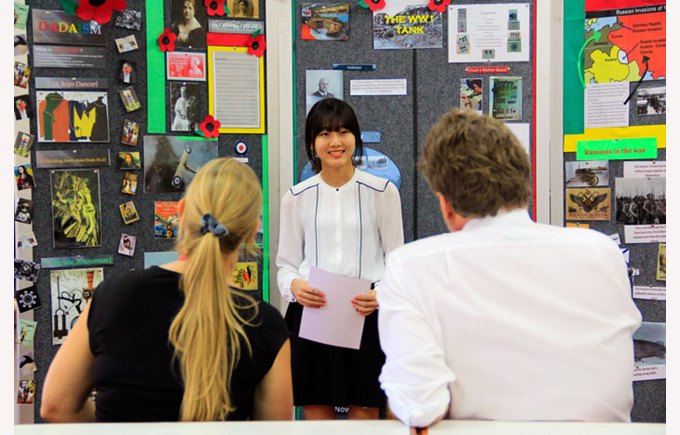
|













